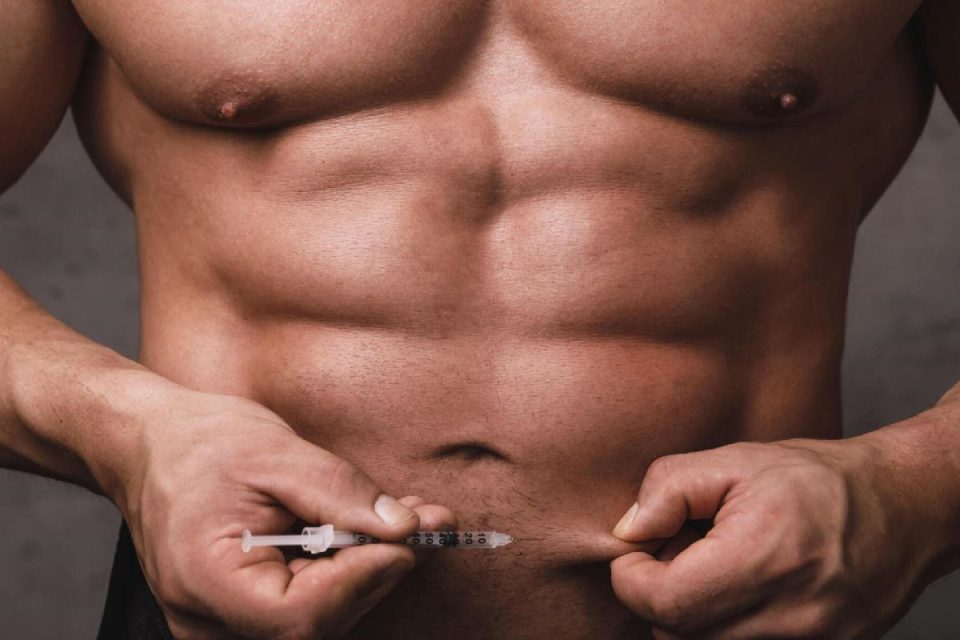Human Growth Hormone (HGH) is a key hormone produced by the pituitary gland, responsible for growth, metabolism, and cell regeneration. As we age, HGH levels naturally decline, leading to various health issues and signs of aging. However, there are several natural methods to enhance HGH production, promoting overall well-being and vitality. In this comprehensive guide, we’ll explore ten effective strategies to naturally boost HGH levels and optimize health.
Table of Contents
1. Prioritize Quality Sleep:
- Quality sleep is crucial for overall health and plays a significant role in HGH production. During deep sleep stages, the majority of HGH secretion occurs, facilitating tissue repair, muscle growth, and fat metabolism. Aim for 7-9 hours of uninterrupted sleep each night to maximize HGH release and support optimal health. Create a relaxing bedtime routine, limit exposure to screens before bed, and ensure your sleep environment is comfortable and conducive to restorative sleep.
2. Engage in High-Intensity Exercise:
High-intensity exercise, such as HIIT (High-Intensity Interval Training) or resistance training, stimulates the release of HGH. These intense workouts promote muscle growth, fat-burning, and overall metabolic health. Incorporate HIIT sessions or strength training into your fitness routine several times a week to enhance HGH secretion. Additionally, regular physical activity improves sleep quality, further supporting HGH production and overall well-being.
3. Embrace Intermittent Fasting:
Intermittent fasting, which involves cycling between periods of eating and fasting, can significantly increase HGH levels. During fasting periods, the body ramps up HGH secretion to preserve muscle mass and promote fat burning. Experiment with different fasting protocols, such as the 16/8 method or alternate-day fasting, to find a strategy that works for you. Combine intermittent fasting with nutritious meals during eating windows to support optimal HGH production and metabolic health.
4. Opt for Protein-Rich Foods:
Protein is essential for muscle growth, repair, and hormone synthesis, including HGH. Consume a balanced diet rich in protein sources such as lean meats, fish, eggs, dairy, legumes, and nuts. Distribute protein intake evenly throughout the day to support muscle protein synthesis and HGH secretion. Incorporating protein-rich snacks post-workout can further enhance muscle recovery and HGH release. Additionally, prioritize high-quality protein sources to maximize nutrient absorption and overall health benefits.
5. Limit Sugar Consumption:
Excessive sugar intake can negatively impact HGH production and overall health. High blood sugar levels trigger the release of insulin, which suppresses HGH secretion. Minimize your consumption of sugary foods and beverages, opting for whole foods rich in nutrients instead. Choose complex carbohydrates, such as fruits, vegetables, and whole grains, over refined sugars to stabilize blood sugar levels and support HGH production. By reducing sugar intake, you can optimize hormonal balance and promote metabolic health.
6. Ensure Adequate Vitamin D Levels:
Vitamin D deficiency has been associated with lower HGH levels and impaired health outcomes. Spend time outdoors to expose your skin to sunlight, a natural source of vitamin D synthesis. Additionally, consume vitamin D-rich foods such as fatty fish, fortified dairy products, and mushrooms. Consider taking a vitamin D supplement if you have limited sun exposure or live in areas with minimal sunlight. Optimizing vitamin D levels supports immune function, bone health, and HGH production for overall well-being.
7. Manage Stress Effectively:
Chronic stress can disrupt hormonal balance and inhibit HGH secretion, negatively impacting health and vitality. Practice stress-reducing techniques such as meditation, deep breathing exercises, yoga, or mindfulness to promote relaxation and hormonal balance. Prioritize self-care activities that nourish your body and mind, such as spending time in nature, engaging in hobbies, or connecting with loved ones. By managing stress effectively, you can support HGH production, improve resilience to stressors, and enhance overall well-being.
8. Consume L-arginine and L-lysine:
L-arginine and L-lysine are amino acids known to stimulate HGH secretion when taken together. Incorporate foods rich in L-arginine, such as poultry, fish, dairy, nuts, and seeds, into your diet. Additionally, consume sources of L-lysine, including meat, fish, dairy, and legumes, to support optimal HGH production. Consider supplementing with L-arginine and L-lysine to further enhance HGH release, especially before workouts or bedtime. By including these amino acids in your diet, you can promote muscle growth, recovery, and overall metabolic health.
9. Avoid Eating Before Bed:
Consuming large meals or snacks close to bedtime can interfere with HGH secretion during sleep. Aim to finish eating at least two to three hours before bedtime to allow HGH levels to peak naturally during the night. Instead of heavy meals, opt for light, nutrient-dense snacks if you feel hungry before bed. Choose options that contain protein and healthy fats to promote satiety and stabilize blood sugar levels. By avoiding late-night eating, you can support optimal HGH production, improve sleep quality, and enhance overall health.
10. Practice Hormone Optimization:
In addition to lifestyle factors, consider consulting with a healthcare professional to explore hormone optimization strategies. Hormone replacement therapy (HRT) or peptide therapy may be options to consider for individuals experiencing hormonal imbalances or age-related declines in HGH levels. Work with a qualified healthcare provider to develop a personalized treatment plan tailored to your specific needs and health goals. By addressing hormonal imbalances and optimizing HGH levels, you can support overall health, vitality, and longevity.
Conclusion:
Incorporating these natural methods into your lifestyle can be beneficial for optimizing HGH production and promoting overall health, vitality, and longevity. However, if you suspect that low HGH levels are becoming a chronic issue, it’s important to seek medical advice. Prioritizing quality sleep, engaging in regular exercise, and managing stress effectively are essential components of a healthy lifestyle, but a healthcare professional can provide personalized guidance and potential HGH therapy and treatment options if necessary. Taking proactive steps and consulting with a medical professional can help address any underlying issues and ensure comprehensive care for your well-being.

